Glasgow 2014: What is the Queen's Baton Relay?
- Published
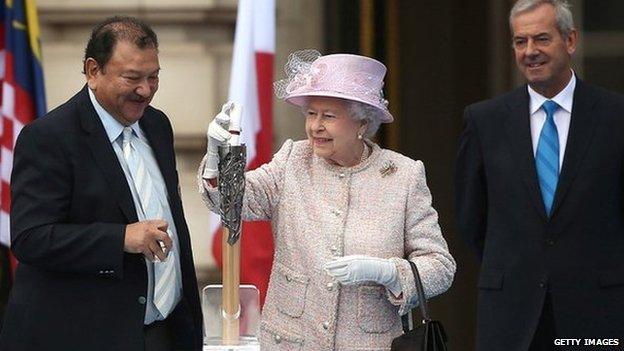
The Queen placed her message inside the baton, watched by Commonwealth Games Federation president Prince Imran Tunku (left) and Glasgow 2014 chair Lord Smith of Kelvin, last October
The Queen's Baton will be carried by thousands of people in a relay around the British Isles before it takes a central role in the opening ceremony of the Commonwealth Games in Glasgow on 23 July.
But what is it?

Queen's Baton Relay
118,000
approx miles travelled so far
70
Nations and territories
-
10,000 approx baton bearers so far
40 days for the baton to travel around Scotland
-
100 people approx will carry the baton in Scotland each day
The Queen's Baton Relay is the main curtain raiser for the Commonwealth Games, which will be held in Glasgow between 23 July and 3 August.
The baton contains a sealed, secret message written by Queen Elizabeth II. Her Majesty placed it inside the baton on 9 October last year during a ceremony at Buckingham Palace. Since then, the baton has travelled around the Commonwealth.
By the end of the relay, the journey will have taken 288 days over a distance of 118,000 miles (190,000km).

Where has the baton been?
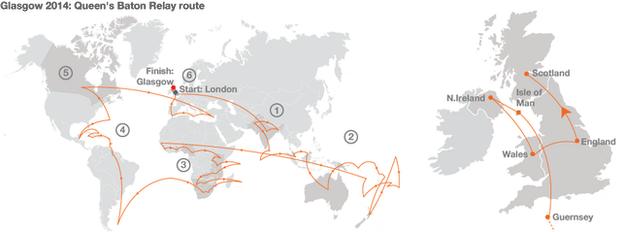
The baton has been on an extensive journey around the world, visiting 63 nations and territories of the Commonwealth in the past seven months.
After visiting the Commonwealth countries in Asia, it travelled through Oceania, Africa, the Americas and the Caribbean before it made its way back to Europe last week.
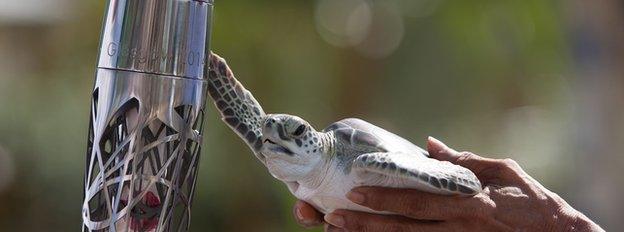
A turtle greets the baton in the Cayman Islands
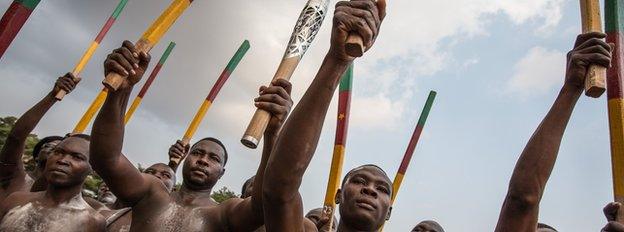
The baton is welcomed in Yaounde, Cameroon
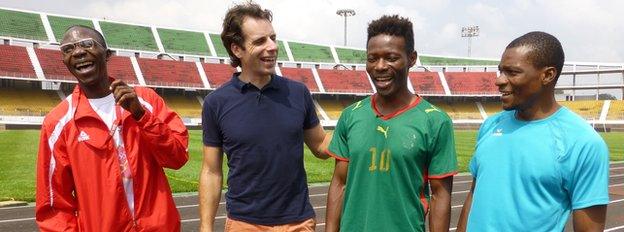
The BBC's Mark Beaumont (second left) shares a joke with some para athletes in Cameroon who are preparing for the Games

What have been the highlights so far?
Queen's Baton Relay: highlights
The baton's journey so far has helped reflect the customs and culture of the two billion people who make up the modern Commonwealth. It has visited the Taj Mahal, was taken under water during a dive in the Seychelles and has been greeted by thousands of children on its journey across Africa.
The baton also sailed across the South Atlantic Ocean on one of the last Royal Mail ships in the world, has been held by world-class athletes including Jamaican sprinting superstar Shelly-Ann Fraser-Pryce, and was carried up the tallest building in Gold Coast - the next host of the Games - in Australia.

Is the baton relay new?
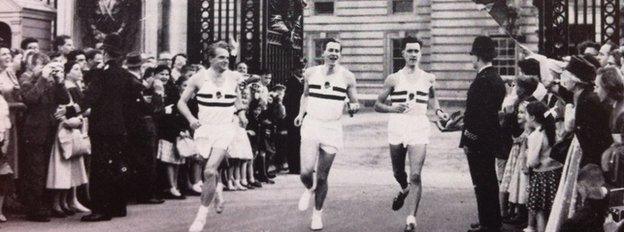
The first baton relay in 1958. L-R Chris Brasher, Roger Bannister (with baton) and Chris Chataway at Buckingham Palace
The baton is a tradition of the Commonwealth Games and has been a fixture in the build up to the Games since the event in Cardiff in 1958, when Roger Bannister was one of the first baton bearers.
Between 1958 and 2002, each baton relay was different in terms of scale and the actual batons. The relays would generally be focused on England - where the baton would receive its message from the Queen - and the host nation of each Commonwealth Games.
For the Manchester Games in 2002, the relay was developed further and visited 23 Commonwealth nations.
The Melbourne Games, in 2006, was the first baton relay that visited all the nations which sent teams to the Games and this continued for Delhi in 2010 and now for Glasgow.

How was the baton made?
The Story of the Commonwealth Queen's Baton
The baton is different for each Games. This year's version was designed and made by Glasgow-based firm 4c Design and reflects the host city and host country.
The elm wood used for the handle was sourced from the Isle of Cumbrae while the lattice metal framework around the Queen's message is inspired by Glasgow's shipbuilding heritage and the work of Charles Rennie Mackintosh.
Granite gemstones, which will be given as a gift to each nation it visits, are from Ailsa Craig in the Firth of Clyde.

Is it anything like the Olympic torch?
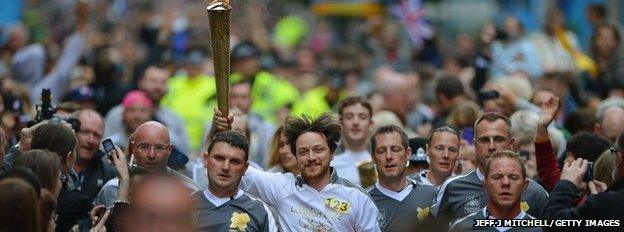
Actor James McAvoy carried the Olympic torch in his native Glasgow to the delight of thousands gathered in the city centre
The baton is the Commonwealth Games version of the Olympic torch.
While the flame was passed between the runners on different torches for the Olympics, the Queen's baton itself is passed between the baton bearers.
For the international leg and for the home nations except Scotland (Jersey, Guernsey, Isle of Man, Northern Ireland, Wales and England), the baton will be passed between people in various ceremonies before it was transported to the next location.
It is only in Scotland when the baton relay will become more like the Olympic torch run, when it is continually passed between the baton bearers.
Like the Olympic torch, the baton will be carried throughout the British Isles by people who are celebrated in their communities for their achievements.
Some of the celebrities who will take part include triple jumper Jonathan Edwards and diver Tom Daley.

Will the baton relay be near me?
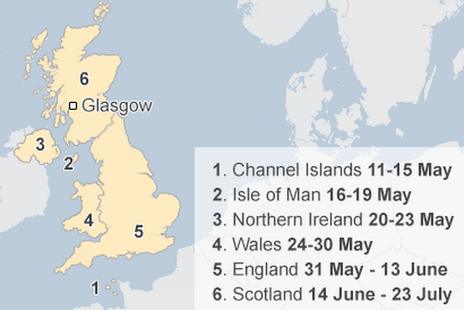
This month the baton will continue its relay around Jersey, Guernsey, the Isle of Man, Northern Ireland and Wales. It will arrive in England on 31 May and cross the border into Scotland on 14 June.
In the host nation, it will spend 40 days travelling around the country in the hands of 4,000 baton bearers before the baton is handed back to the Queen, or her representative, at the opening ceremony of the Games on 23 July. The message inside will then be read out as part of the official opening of Glasgow 2014.

How can I follow the baton's journey?
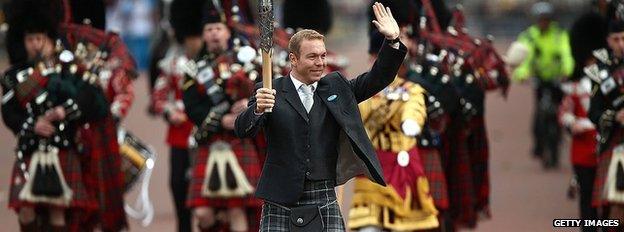
Glasgow 2014 ambassador Sir Chris Hoy led the Scots Guards 1st Battalion Pipes and Drums up The Mall in London before the relay was launched.
BBC presenter Mark Beaumont has covered the baton relay throughout the international leg on television, on radio and online.
Mark has met many interesting characters around the Commonwealth and some athletes preparing for Glasgow 2014 including Olympic 800m medalist Nijel Amos and Olympic champion hurdler Sally Pearson.
With the baton now back on the British Isles, there will be extensive coverage of the relay across the BBC including television documentaries and a rolling live video online every day when the baton is in Scotland.
There will also be regular updates when it is in the other home nations. For more information, visit the BBC's Queen's Baton Relay website.
- Published1 May 2014
- Published23 April 2014
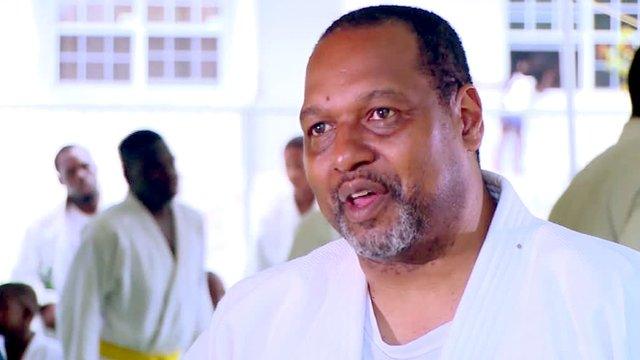
- Attribution
- Published15 April 2014
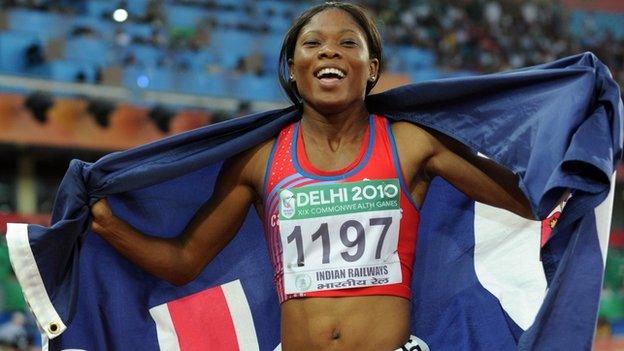
- Attribution
- Published15 April 2014
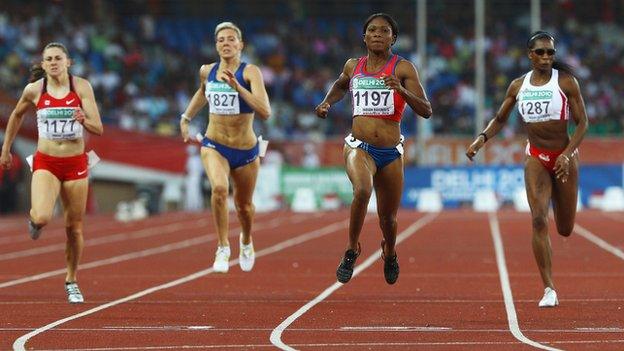
- Attribution
- Published7 April 2014
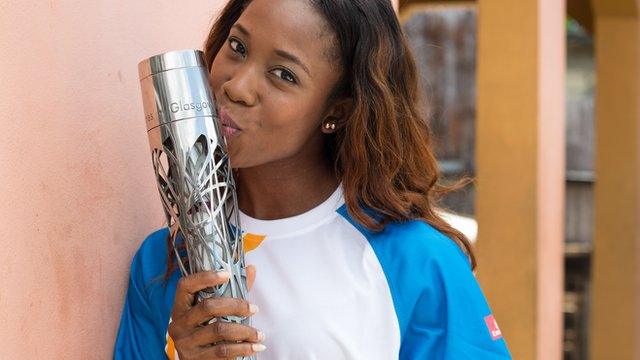
- Attribution
- Published1 April 2014
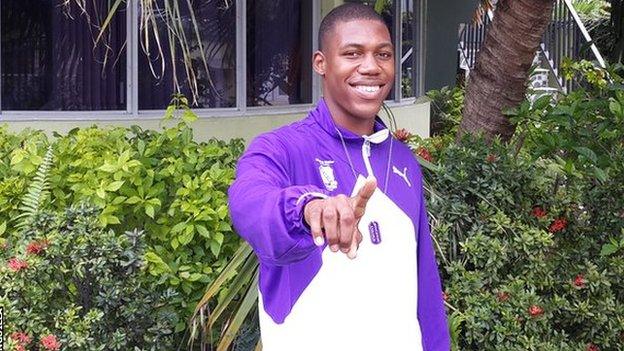
- Published28 March 2014
- Attribution
- Published19 March 2014
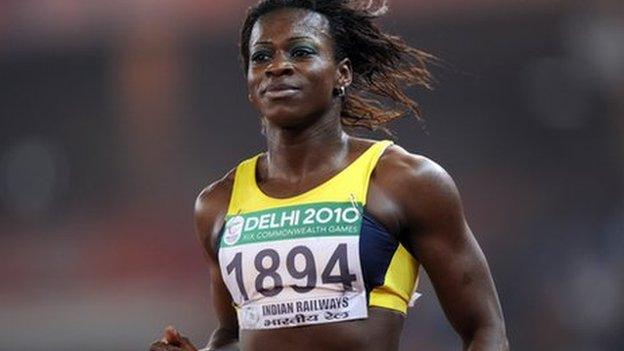
- Attribution
- Published10 March 2014
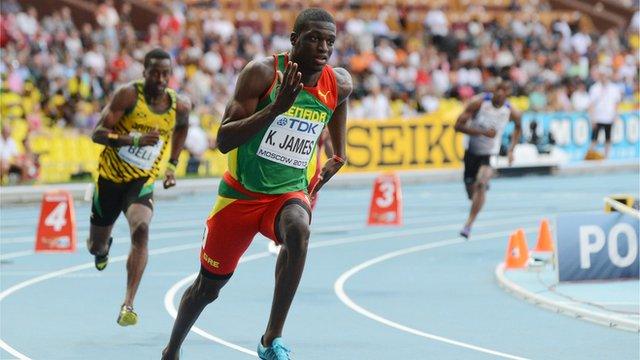
- Attribution
- Published13 March 2014
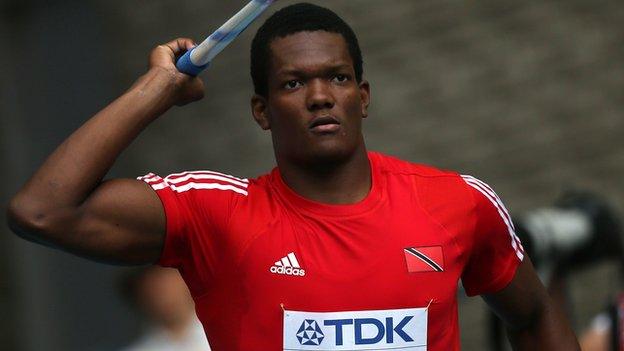
- Attribution
- Published9 February 2014
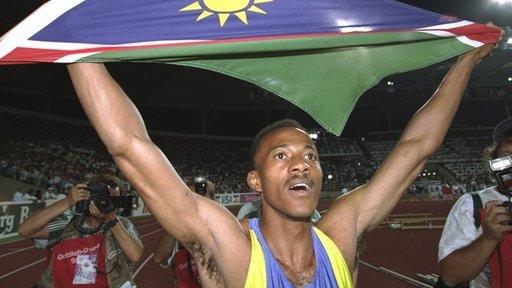
- Attribution
- Published9 February 2014
.jpg)